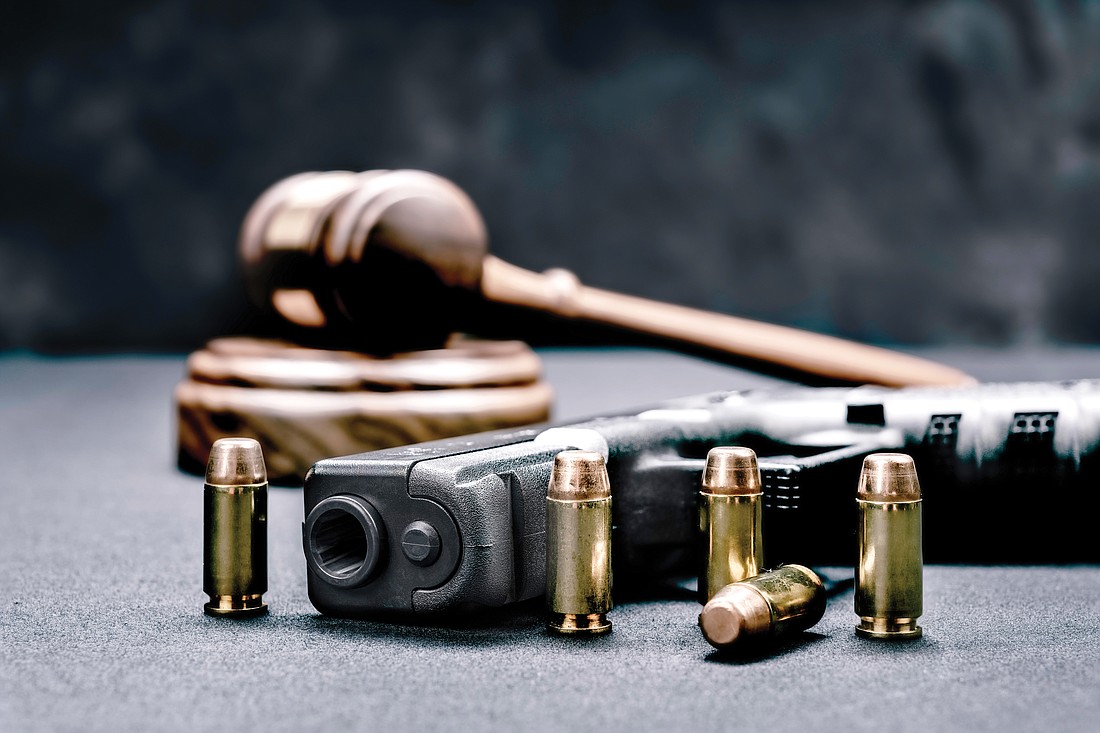- May 28, 2025
-
-
Loading

Loading

Florida Agriculture Commissioner and recent candidate for governor Nikki Fried has appealed her case seeking to restore the rights of medical marijuana patients to buy and possess firearms. Fried initially filed the suit against the U.S. Justice Department in April.
She argues that the department’s regulations against gun ownership for medical marijuana patients violate those patients’ Second Amendment rights and run afoul of appropriations riders that restrict the department from using any resources against state-regulated medical marijuana programs.
The case was dismissed in November by a federal district court judge. Judge Allen Winsor ruled that Fried held standing to bring the suit as she holds oversight over both Florida’s concealed carry licenses and medical marijuana programs.
She was joined by two plaintiffs who are registered medical marijuana patients and were barred from purchasing a firearm and a third co-plaintiff who is a gun owner with a qualifying medical condition who would like to participate in Florida’s medical marijuana program.
The standing of all plaintiffs was affirmed by Judge Winsor because they suffer direct harms from the Justice Department’s enforcement actions.
The Justice Department, through its Alcohol, Tobacco, Firearms and Explosives Division, bars participants in state medical marijuana programs from owning or purchasing a firearm. One method of enforcing this prohibition is the inclusion of a question on ATF background checks about whether the prospective gun buyer uses illegal drugs.
Although marijuana is legal for medical use under some state laws, and for adult use in some states, it remains illegal at the federal level. By contrast, use of federally legal pharmaceuticals with intoxicating characteristics, such as oxycontin, is not necessarily a reason for ATF to deny a gun purchase. Neither is alcohol use.
In court briefings, the department argued that there is a public interest in prohibiting marijuana users from possessing guns and that its regulations are consistent with historical restrictions on the Second Amendment. The department pointed out that the federal government has previously barred Catholics, Native Americans, panhandlers and the mentally ill from obtaining firearms, so it has adequate historical precedent to bar medical marijuana patients.
The Biden administration received backlash for relying on these comparisons and eventually backed off its claims that marijuana use makes individuals more inclined toward crime. Yet, the administration has continued to argue—in spite of evidence—that medical marijuana patients might be more disposed to engage in domestic violence.
Central to Fried’s claim is that congressional riders to federal appropriations bills specifically restrict the Justice Department from using any financial resources to impair state-regulated medical marijuana programs. Judge Winsor seemingly dismissed this claim prematurely, arguing that the department can bar gun possession because marijuana possession is a federal crime:
Regardless of whether Plaintiffs are prosecuted (or whether Congress allocates funds for their prosecution), possession of marijuana remains a federal crime. The Rohrabacher-Farr Amendment at best precludes prosecution now; it does not forever bless Plaintiffs’ actions.
Winsor’s opinion does not consider that the Justice Department presumably spent financial resources to include its question about marijuana use on ATF background-check forms and pays staff to review these forms. While the department might argue that these enforcement actions are related to regulation of gun ownership and not medical marijuana programs, it clearly has the effect of discriminating against medical marijuana patients using funds appropriated by Congress. On this basis, the ATF’s screening of prospective gun buyers on the basis of whether they use marijuana for medical purposes would appear as a clear violation of Congressional appropriations directives.
There is no evidence that medical marijuana patients are any more disposed to engage in violent crime than other groups. To the contrary, the available evidence indicates that medical marijuana is associated with slightly lower crime rates. Fried expressed her disappointment in August that the Justice Department “would perpetuate such harmful and offensive prejudicial stereotypes that cannabis users are dangerous or mentally ill.”
As Fried continues the appeal process, cannabis consumers in Florida and elsewhere should remain highly interested in the outcome. After all, any ruling against the Justice Department could result in positive outcomes for medical marijuana patients across the nation.